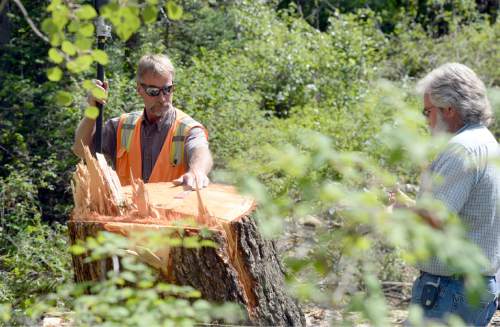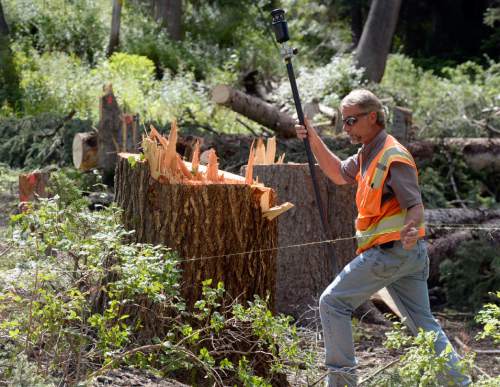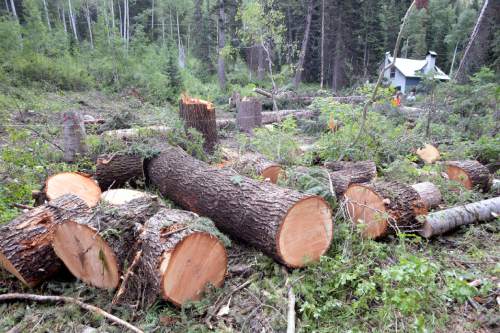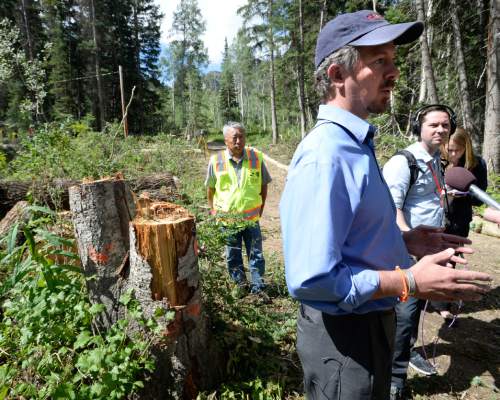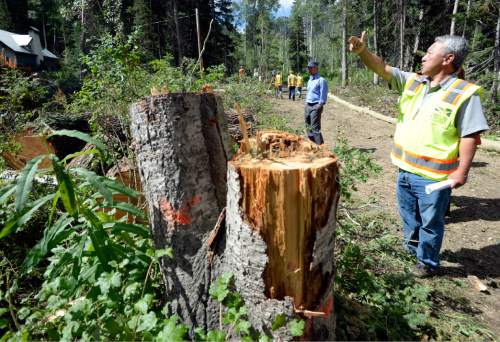This is an archived article that was published on sltrib.com in 2016, and information in the article may be outdated. It is provided only for personal research purposes and may not be reprinted.
Three companies involved in illegally cutting down 88 mature to old-growth trees in the Silver Fork area of Big Cottonwood Canyon last summer have agreed to replace the felled trees, ensure the new ones grow and pay civil penalties.
In his announcement of the settlement Friday, Salt Lake County District Attorney Sim Gill put its value to the county at $117,500.
"This settlement sends an important message to those who seek to profit off the development of land in Salt Lake County," he said Friday in a news release about the agreement with Silver Hill Development, Twin Peaks P.C. and its principal, Scott Carlson, and AA Tree.
"Our environment is one of our most precious resources," Gill added. "Those who needlessly and recklessly cause damage to that vital resource in violation of law will be held fully accountable."
This is the week's second major environmental action involving the district attorney's office.
On Wednesday, Gill sued Volkswagen for falsifying the emissions readings produced by its vehicles, contending the German automakers' transgressions contributed significantly to air pollution and health problems in the pollution-troubled county.
After the tree-cutting deal was announced, Twin Peaks' Carlson said "we're glad the settlement was reached and that it allows for the restoration of these trees that were wrongly cut." He said the settlement will resolve "all of the concerns" raised by the incident, including criminal investigations by the county and the feds.
Efforts to contact the other companies for comment were unsuccessful. A U.S. Forest Service spokeswoman did not return a call Friday to verify the status of a federal probe into the trees cut on its land.
The district attorney's office release said none of the settling parties admitted intentionally cutting the trees in violation of a county ordinance and regulations, but all agreed to plant 130 trees (valued at $750 apiece), post a $100,000 bond to ensure the project is completed and pay the county $20,000 in civil damages and penalties and to cover investigative costs.
The damage occurred in the middle of July, with the development company blaming a miscommunication with a contractor for the removal of the trees, some of which were on U.S. Forest Service land.
Rolen Yoshinaga, whose Division of Planning and Development Services oversees land-use issues in Big Cottonwood and several other canyons, said, "There is no 100 percent satisfactory replacement of a 100-year-old tree. We are pleased, however, that the responsible parties here stepped up to replace trees and restore land that is an essential part of our watershed."
In the release, Mayor Ben McAdams said the county is committed to enforcing its role as steward of those canyons and the public's desire for "safe, clean drinking water. … I am grateful the parties willingly accepted responsibility to make environmental restitution to our watersheds."


